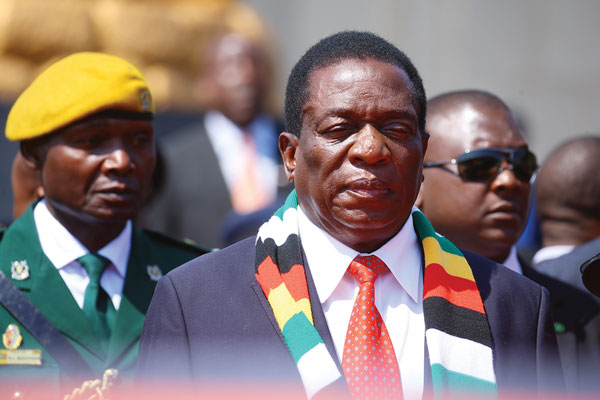
The passing of the controversial constitutional amendments by the Senate last week marked yet another major reversal in Zimbabwe’s push to transform into a democracy since the 2017 coup.
President Emmerson Mnangagwa and the security forces that masterminded the military putsch justified their move to topple Robert Mugabe by claiming that they wanted to protect the constitutional order that was allegedly being threatened by a Zanu PF faction.
Yet in three years, Mnangagwa’s government is about to do the biggest damage to the constitution by introducing the first amendments to the 2013 constitution with the sole objective of entrenching his rule.
The amendments will give the president powers to appoint the chief justice, deputy chief justice and the judge president.
Some of the progressive clauses that came with the widely supported new constitution meant that aspiring High Court, Supreme Court and Constitutional Court judges were subjected to public interviews.
That way chances of neposition and cronyism were minimised in the selection of judges.
It took Mnangagwa’s ruling Zanu PF, which enjoys a super parliamentary majority, over three years to push through the contentious amendments after a spirited campaign by the opposition and civil society to block them.
The Bill was initially passed in August 2017, but Constitutional Court judges ruled that the process violated the constitution.
- Chamisa under fire over US$120K donation
- Mavhunga puts DeMbare into Chibuku quarterfinals
- Pension funds bet on Cabora Bassa oilfields
- Councils defy govt fire tender directive
Keep Reading
After a year of purges targeting the mainstream opposition MDC Alliance whose legislators were controversially thrown out of Parliament, the amendments were passed unopposed by the Upper House.
Zanu PF got help from the opposition MDC-T to push through the amendments.
Zimbabweans were not adequately consulted before the amendments were passed.
This also came on the back of government’s failure to align most of the laws to the new constitution and the retention of various pieces of legislation that are unconstitutional.
It has become very clear that Mnangagwa does not intend to keep the promises he made when he was installed by the military as president three years ago that he was ushering in a “new and unfolding democracy”.
However, it is not too late for the president to stop the slide into mediocrity by refraining from signing the Constitutional Amendment Bill into law.
By refusing to sign the Bill, he will undo the damage done by both Zanu PF and the MDC-T and restore hope that indeed Zimbabwe is not descending into some Banana Republic.
The government and the legislature should be channelling their efforts into ensuring that laws are aligned to the constitution instead of mutilating the supreme law.











